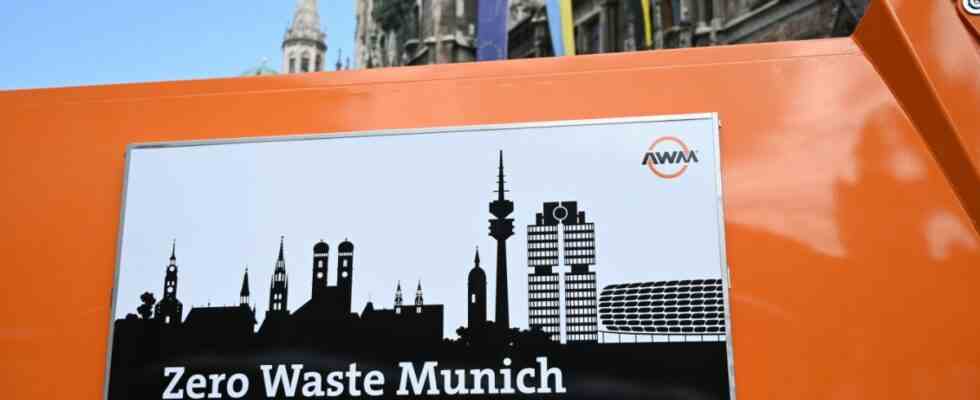56 kilograms less waste per capita and year. 310 kilos instead of 366, as before. That’s one of the overarching goals the city wants to achieve by 2035, and the City Council unanimously approved it on Thursday as part of its zero-waste strategy. With 100 individual measures, the aim is to ensure that the people of Munich produce less waste in the future and, secondly, do not throw it in the wrong bin. Big chunks like the reduction of building rubble should also be tackled – 54 percent of the waste in Germany is generated in the construction sector.
The term “zero waste” was widely criticized in the debate. Because literally translated it means “zero waste”, and of course it can’t be about that. It’s about reducing the waste of resources and recycling everything that can be recycled. That has to be explained well again and again, said City Councilor Julia Post (Greens). And since she was there, she immediately criticized another euphemistic term: “thermal recycling”, i.e. waste incineration.
The term “zero waste” is unfortunate, agreed municipal officer Kristina Frank (CSU), mainly because it “suggests something completely wrong”. This raises expectations that are not justified. The problem: the European initiative that was joined there has the same name. The city therefore always wants to add “Munich against wasting resources” in the future. Beyond terminology, the city councilors agreed that the concept was a big step forward. City Councilor Post called the draft resolution of the municipal department “impressive”. Kathrin Abele (SPD) spoke of a “milestone”, now it is to be hoped that the efforts will bear fruit.
However, the Greens complained that the ambition for organic waste was far too low, as was the case with electronics. “I would have wished for more,” said Julia Post. In Munich, only about five kilos of old electrical appliances are collected per capita and year – the national average is about twice as much. Valuable raw materials thus escaped recycling. There must be improvements, corresponding applications are in preparation.
Her parliamentary colleague Christian Smolka pointed out that other cities, with up to 100 kilograms per capita and year, collected significantly more organic waste than Munich with 30 kilograms. The majority of the city council agreed to an amendment by Green-Red, according to which the organic waste quota should be doubled by 2030 and not only by 2035, as suggested by municipal officer Frank.
Heike Kainz (CSU) remembered how she collected glass bottles with her children 30 years ago and fetched fresh milk from the tap – “steel cow” was what it was called at the time. Many sustainability efforts have fallen asleep over the years, she said. “It’s good that this is now being taken up again in a more modern way.” ÖDP city councilor Nicola Holtmann was “disappointed” with the draft resolution. “This can really only be the beginning.” After all, the city administration has set itself significantly higher goals.

